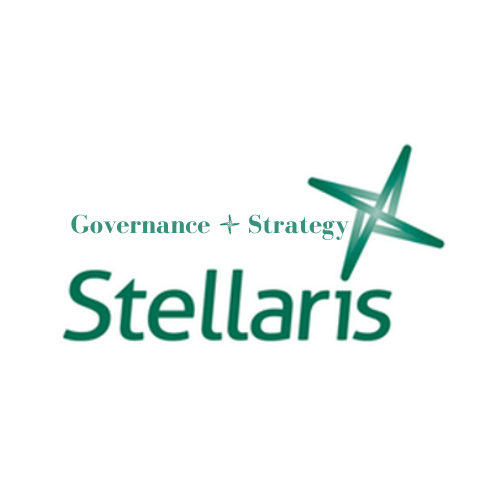What you need to know before you say yes
So you have been asked to join a board?
You may have been asked to stand for election as a member of the school board of trustees.
Firstly congratulations for thinking of taking on a governance role. As we shall see there are many responsibilities and some personal risks in terms of reputation and money that balance the sense of achievement of leading an organisation. The community needs people such as you who are prepared to face such risks.
“Hang on Ron”, I hear you say. “What are all these risks and responsibilities you are talking about? I just want to use my skills and knowledge to help out. It can’t be that hard…..can it?”
Being a member of a board can be a very satisfying experience and being asked to join a board can be very seductive to the ego. But there are some things you need to know before saying “Yes.”
Some definitions
Before we discuss those questions let me explain what I mean by some of the words in this article.
In this article a board is the governing body of an incorporated body. Incorporated bodies might be;
1. Trusts: There are many types of trusts such as charitable trusts (registered as a charity with the Charities Commission), family trusts, Maori trusts and trading trusts
2. Limited Liability Company: A company is registered under the Companies Act and always has Limited (or Ltd) as a part of its full name.
3. Incorporated society: Most clubs are incorporated societies. Their official name ends in ‘Inc.’ as in Greerton Sports Club Inc. but often the Inc is left off e.g Plunket Society.
So a member of the governing body might be a director, a trustee or a member of the executive committee. To keep things simple I will refer to all these people as directors and trustees in this article.
This article is about those organisations which are big enough to have management. Many of the lessons are still relevant to smaller clubs and societies but there are a few differences that pop up because the directors are also the management and that can confuse things.
The second point I want to make before we get into the questions you should ask before saying “yes” is to explain what the role entails.
A director or trustee is a member of a team. The team might be called a board or a committee depending on the type of organisation. We’ll just refer to boards to keep things simple.
The board has four jobs:
- Set the tone of the organisation
- Make sure the organisation complies with all the rules and regulations of the business they are in
- Hold management to account for the jobs the board has delegated to management
- Set in place a strategy for the development of the organisation
Any one of these roles will be more important than others at different times depending on the time of year, the maturity of the organisation and so on.
So now to the questions to ask. The first question to ask is:
1. How do I fit into the team?
The board is a team. Just like a great sports team a good board will have a range of skills and knowledge. Some skills and knowledge need to be common to everyone on the team: understanding how to read a set of accounts and knowing your legal obligations as a director would be two.
You should have been asked on to the board because you have attributes that fill a gap in the skill set of the board. Perhaps the organisation is embarking on a building programme and you have an engineering background. Perhaps your financial background is useful because there is about to be a five year fundraising programme.
2. Ask why you are being asked to join.
If the reason is that you “get along” with everyone else this might be a warning. It means that the board might comprise of people like you and that big gaps in skills and knowledge will appear. If everyone thinks the same way then some questions will not get asked and some ideas will not be challenged.
As Mark Twain said: “If two people agree on everything then one of them is unnecessary”.
A board which does not challenge decisions is likely to miss opportunities or worse, not recognise risks.
Some people are asked because they have “name recognition” in the community. If you are one of these people you need to ask whether your skills match the expectation that comes with your name. For example David Kirk is well known because he captained a world cup winning rugby team so many people will support an organisation because he is involved. However he has excellent business skills to back up his celebrity status. Recently investors became involved in Lombard because of the reputation of the directors such as Sir Douglas Graham. According to the Courts he did not have the skills to back this heightened level of expectation.
3. Are you being asked to join the board because it is cheaper to pay you a directors fee than to pay your professional rates?
Lawyers and accountants often get asked to join the board and then are expected to act as the company advisor. This is wrong!
All board members should be equally au fait with the implications of any decisions they make. As the director who is an accountant you might recognise the implications in some of the reports before others do and have more in depth questions to ask. If the answers that come back from management are not in plain English so that only the accountant director can understand then the board has a problem.
As a board you delegate management to the Chief Executive. Your role is not then to become one of the CEOs management team.
The next question follows from the first:
What are my skills?
Self awareness is a tremendous character trait. Knowing what you are good at and what you need to improve are important life skills.
Being comfortable in your own skin means that you acknowledge that there are things you need to get better at. This is not a problem. It is merely a challenge to be addressed. Get some training, find a mentor, read books.
It might be that you need to learn some accounting skills. Perhaps you don’t know much about the sector that the board operates in. Be upfront about it just as you expect others at the table to be honest about their strengths and weaknesses so that everyone knows how to make the most of the team.
Sometimes new directors are so honoured by being asked to join the board that they feel that they can’t admit to needing upskilling. They should feel honoured that you are prepared to get even better!
So feel free to ask about the induction process.
- How will you be introduced to the organisation and its work?
- When will you be told more about compliance issues special to this business that you might not be expected to know (obviously you know how to read accounts, recognise basic employment law etc)
Am I joining the organisation I think I am joining?
Due diligence is the term we use to describe the process of checking on the organisation before you join up.
- Why is there a vacancy? Is it because someone feels they have done their time and needs to move on or are there conflicts that they felt unable to deal with?
- Are the accounts accurate? Have they received unqualified audit reports? What is the cashflow like? Is the organisation sustainable? Does revenue come from the normal business or a series of one off events?
- Who are the people involved? Do I know the other board members? Am I comfortable with the current management team? Are there others involved outside the board or management who are influential in the organisation such as shareholders or patrons? What else are they involved in now and in the past? Do some members of the board dominate or is the board a genuine team?
- What is the culture of the organisation? Are staff and customers treated the way you would treat them? What is staff turnover like compared to other similar organisations?
- What is the goal and purpose of the organisation? Check deeds and constitutions to see whether the organisation is in tune with the reason it exists. Has a not for profit become too profit driven? Has a commercial enterprise drifted into markets that are not its core business? Is this deliberate or accidental?
- What does the strategic plan look like? Is there such a plan? Is the organisation meeting the goals set in the plan or drifting away? When does such planning take place?
These are all questions about the organisation and the way it works.
Why all these questions?
Why do you need to do all this? In the end you only want to join a board to help the organisation grow and achieve its purpose, perhaps to develop your own career and to do some good in the community. Isn’t this going a bit overboard?
Firstly if you are the wrong person for the board then the organisation will not be as effective in achieving its purpose and developing to its best capability.
Secondly there are some big penalties for not being conscientious as a director. Under the Companies Act there are
- 28 reasons an individual director can be fined $5000
- 22 reasons an individual director can be fined $10000
- 3 reasons an individual director can be fined $50000 and
- 9 reasons an individual director can be fined $200000
Can you afford that?
Recent court decisions have made it very clear that directors and trustees are expected to act with dedication and professionalism. Not reading documents because you think that the lawyer on the board will do it is not an excuse that the courts will accept. If you accept the role of director it is assumed that you have accepted that you have the skills and knowledge to do the job completely.
In one case before the courts at the moment the various defendants are claiming that the other directors never told them what was going on. It is likely that the court will not accept this excuse. Can you trust all the other directors or trustees on the board to share all the information relating to issues before the board? Robust discussions ensure robust decisions. Can you trust other directors to keep confidentialities and not score points with the public?
The time to be sure is before you join the board.
Ask:
- Am I being asked to join for the right reason
- Have I got the skills and knowledge they think I have?
- Is the organisation what it appears to be?
With the right answers you can confidently say “Yes. I will join the Board”. And then make a difference.
Ron Scott, first published in Tonic Magazine on Thursday, July 2012


Recent Comments